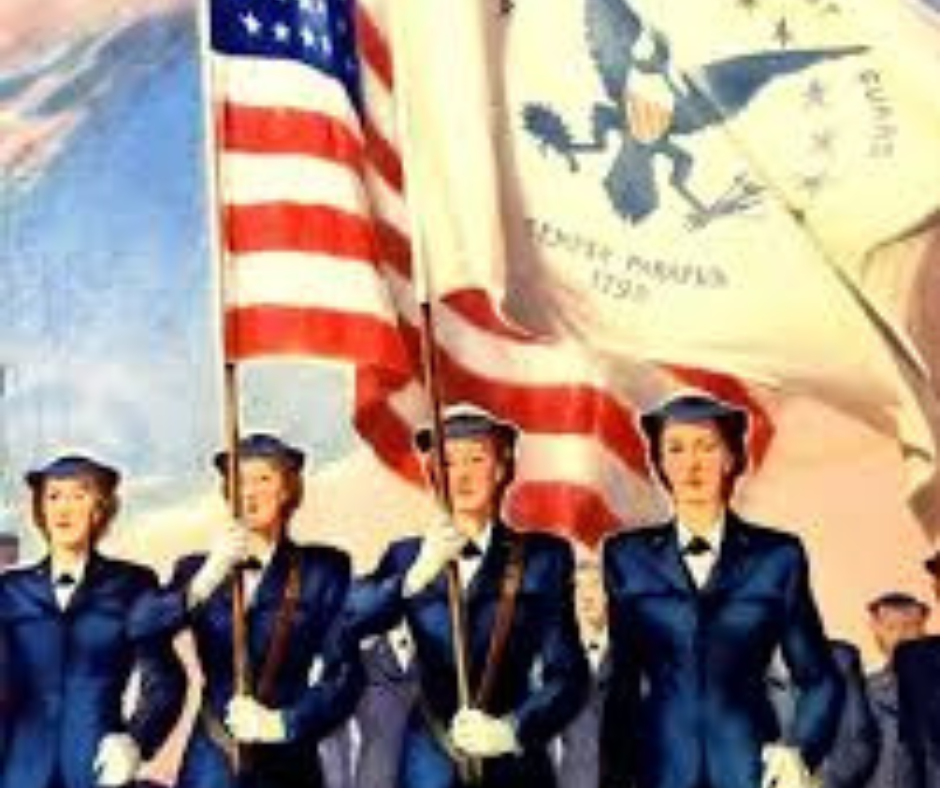
The Fourth of July fireworks always remind me that summer has arrived, no matter what a struggle the spring weather had getting us here. Their nosy beauty also reminds me that my favorite aunt’s birthday is coming right behind. Aunt Dote died in 2004, shortly after her 90th birthday, but the fireworks and all the festivities still ignite my memories of her since the anniversary of her July 6th birthday always follows that pause in our workaday world.
Aunt Dote was my mother’s unmarried younger sister, an attractive career woman who dressed like a movie star (think Katherine Hepburn), and who “doted” on my sisters and me. She became an accountant for Ford Motor Company in the days when that field was dominated by men. She got there by joining the armed forces as a Spar, the women’s division of the Coast Guard. “This might save some father from having to leave his kids,” she said at the time. It gave her the opportunity to go to college on the GI bill, and graduate second in her class.
Who was she to me? I see now that our relationship demonstrated that African saying, “I am because she was.” An example –my sister and I were present when Aunt Dote graduated, and the inspiration of that day took us both, years later, to our own college graduations–the only two of Aunt Dote’s 11 nieces and nephews to achieve that milestone.
Grieving is not what we have been taught to expect, a time-limited orderly process that ends at some point when the loss is fully processed. It’s a spiral through the years of an entire lifetime, with pauses along the way to honor and remember. Remembering important people in our lives through the years is central to grieving well.
When I learned of Aunt Dote’s death, my daughter was gravely ill. I wasn’t sure I should leave her, even for the time it took to attend the funeral and return. But I attended. Now I compare the painful raw sorrow I had then to the sweet sorrow it has become. I can revisit her burial now, in the Great Lakes National Cemetery in Michigan and remember that one of the things her “Scottish heart” liked the most about it was that, due to her military service, all costs were covered by the government. I still see the ceremonial folding of the flag being done by two uniformed military personnel, and appreciate again, a small detail I knew at the time my aunt would love –one of the officers is a woman. I hear again the odd number gun salute and feel in my palm, the metal casing that I had picked up from the ground as a souvenir.
We revisit not to repeat but to understand at a deeper level, our loved ones and who they are to us now, as our own lives have come around another bend. I still have not reached the age my aunt was when she left, and I remind myself that I have not had to deal with some of what her life brought her. Her influence continues each year as I attempt to pass on to my granddaughters and other young women what she brought to me, and I hope they will pass it forward to others in their lives. I’ve heard it said that a life doesn’t end until no one still living remembers the person and speaks their name.

